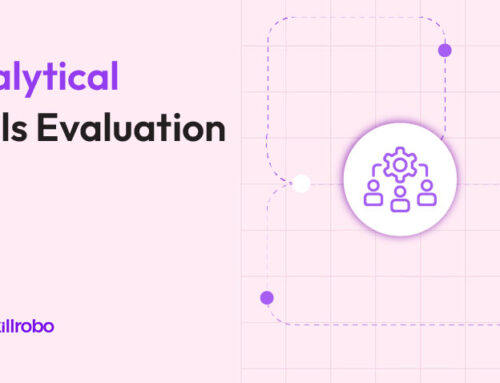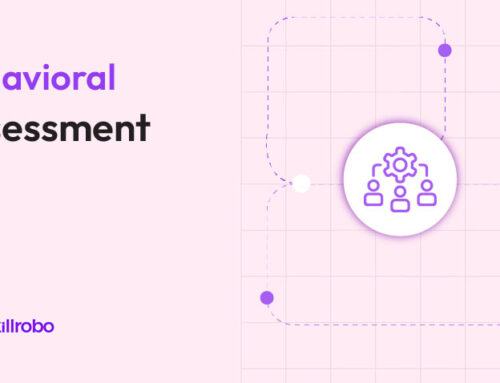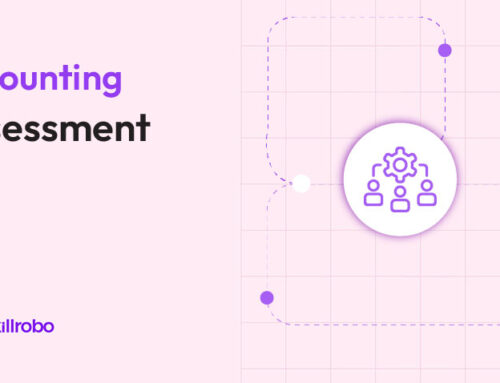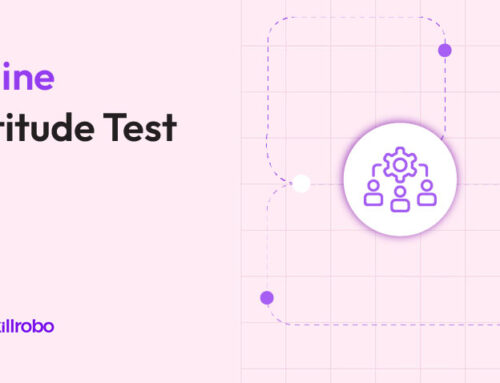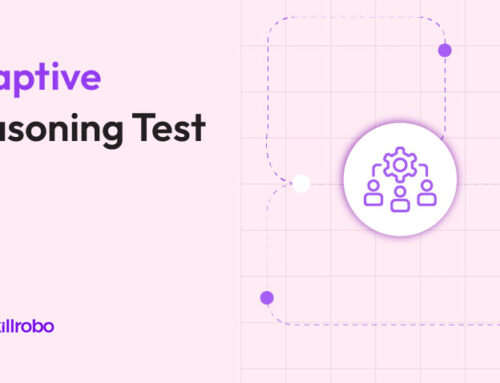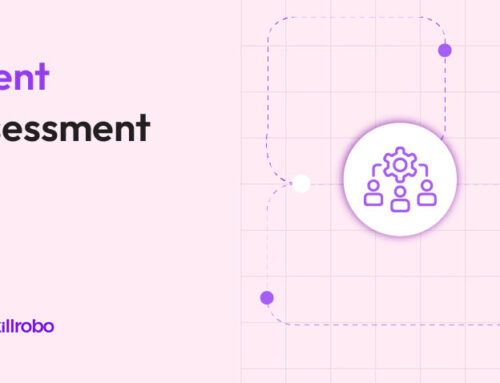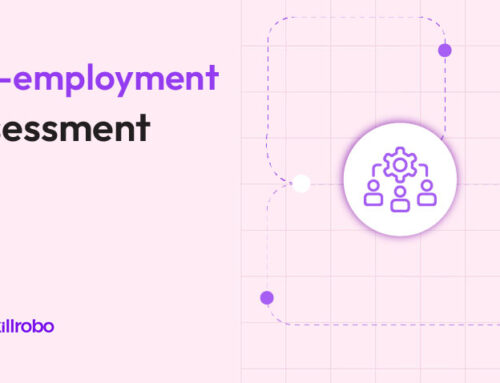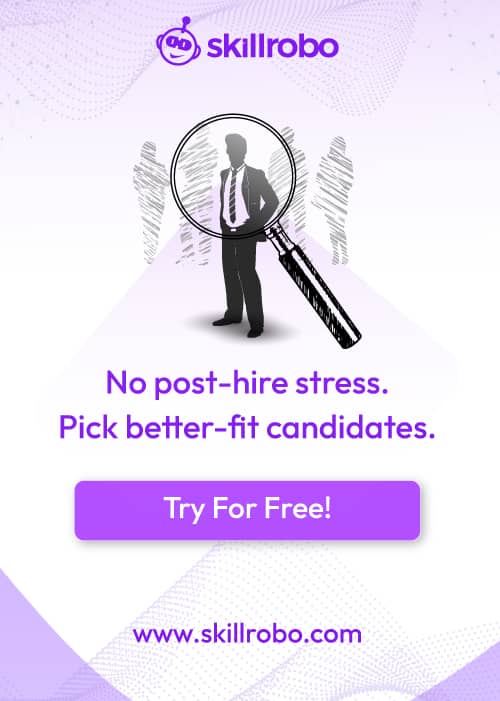Table of Contents
Related articles
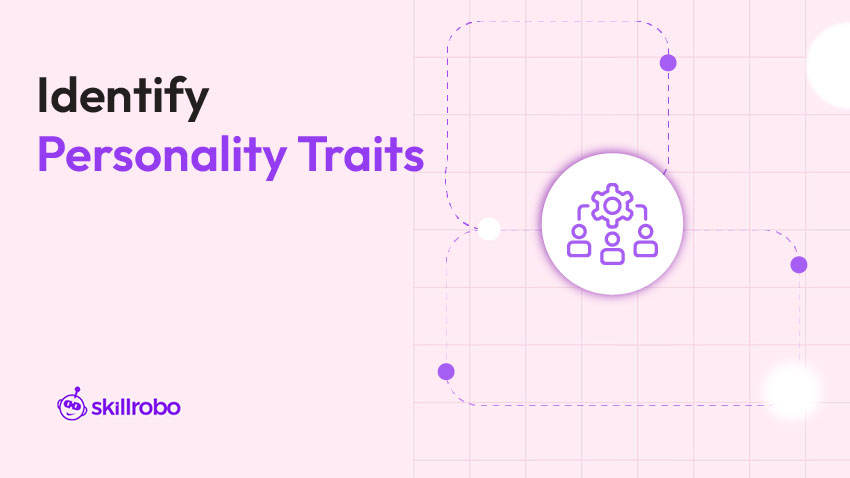
Key Takeaways
-
Identifying personality traits in candidates is crucial for job fit, team compatibility, and long-term employee retention.
-
Positive traits like adaptability, loyalty, and communication enhance team dynamics and productivity.
-
Negative traits such as dishonesty, impulsiveness, and arrogance can harm team morale and business outcomes.
-
The Big Five Personality Test helps evaluate key traits like openness, conscientiousness, extraversion, agreeableness, and neuroticism.
Why Personality Traits Matter in Hiring
As a hiring manager, your goal is to find candidates who not only meet the skill requirements but also align with your company’s values and culture. A stellar resume may not guarantee success if the candidate’s personality disrupts team dynamics or clashes with workplace norms. That’s why identifying both positive and negative personality traits is critical to long-term success. In this blog, we’ll explore why personality traits matter, what traits to look for, how to identify them during interviews, and how assessments can support smarter hiring decisions.
What are Personality Traits?
Personality traits refer to enduring patterns of thoughts, feelings, and behaviors that make up an individual’s way of approaching and interacting with the world. These traits are relatively stable and consistent across different situations and over time and are believed to be influenced by a combination of genetics, upbringing, and environmental factors.
For example, being sometimes angry is not a sign of a certain personality type. However, “being angry” is probably a personality attribute of that person if their regular behavior is unpleasant rather than calm. These characteristics frequently predict success or failure in particular professional situations. As a result, businesses must evaluate applicants’ personalities as part of the hiring process.
Why is it Important to Identify Positive and Negative Personality Traits?
Identifying personality traits is an essential part of the hiring process. A candidate’s personality can impact how they perform on the job, how they interact with coworkers, and how they fit in with the company culture. A candidate with a positive personality can bring a sense of warmth, positivity, and teamwork to their work, while a candidate with a negative personality can cause conflict, decrease morale, and negatively impact productivity. It’s crucial to identify these traits to ensure you hire someone who will contribute positively to the team and the company.
List of Positive Personality Traits to Look For
There are several good personality traits that you should look for in candidates. Below are some of the most important ones:
- Adaptability- A candidate who can adapt to new situations and challenges is a valuable asset to any team. They can take on new responsibilities and learn new skills quickly.
- Positive attitude- A positive attitude can help create a positive work environment. A candidate who is optimistic and sees the best in situations can help motivate coworkers and increase productivity.
- Team player- Someone who is a team player can work well with others and prioritize the success of the team over their own goals.
- Strong work ethic- A candidate with a strong work ethic is reliable and committed to doing their best at work.
- Good communication skills- Clear and effective communication skills are essential in any workplace. A candidate who can communicate well can help prevent misunderstandings and increase efficiency.
- Sociability- Charming individuals with strong interpersonal skills can be effective team builders. Such individuals succeed in professions in the hospitality and entertainment industries.
- Ability to inspire- Employers who consistently motivate and inspire their people can achieve excellent job results.
- Persistence- Some people approach their work with a “come whatever may attitude,” which is a helpful trait for jobs where one must consistently work towards the intended result.
- Loyalty- Being a trustworthy employee is a huge value.
- Independent thinking- People who are brave enough to express their opinions add something new to the discussion.
List of Negative Personality Traits to Watch Out For
Just as there are positive personality traits to look for, there are also negative traits to watch out for. Below are some of the most important ones:
- Dishonesty- A candidate who lies or exaggerates their experience or qualifications can be a liability to the company.
- Negative attitude- A negative attitude can bring down the morale of the team and decrease productivity.
- Selfishness- Someone who is selfish prioritizes their own goals over the success of the team or the company.
- Poor work ethic- A candidate with a poor work ethic may not be reliable or committed to doing their best work.
- Poor communication skills- A candidate who struggles with communication can cause misunderstandings and delays in projects.
- Arrogance- Arrogance is a significant obstacle since it ignores different viewpoints that one must take into account in a professional situation.
- Laziness- People who exhibit this trait frequently miss deadlines, which may be quite expensive for a business.
- Rigidity- Being rigid in the workspace may affect the team’s peace. Flexibility is a necessary quality in this dynamic world. One cannot afford to be rigid if one wants to be flexible.
- Impulsiveness- Impulsivity is one of the negative personality traits that can be detrimental in professions where decision-making requires careful consideration of specific data and analyses.
- Apathy- Compassion can foster professional relationships and enhance problem-solving. The overall success of a corporation may suffer if this is not possible.
The Significance of Assessing a Candidate’s Personality
Assessing an applicant’s personality is essential to determining job fit. Different jobs require different personality traits, and employers need to ensure that the candidate has the necessary traits to perform the job effectively. For instance, a salesperson needs to be outgoing, persuasive, and confident, while an accountant requires attention to detail and analytical skills. Assessing an applicant’s personality can help to ensure that the person is a good fit for the role and reduce the likelihood of employee turnover.
Assessing a candidate’s personality can improve and regulate several things in a workspace.
1. Job Fit
Different jobs require different personality traits. By assessing an applicant’s personality, employers can determine whether the applicant has the necessary traits to perform the job effectively. This can help to ensure that the person is a good fit for the role and reduce the likelihood of employee turnover.
2. Team Dynamics
These traits can also impact how well an employee will work with others. By assessing an applicant’s personality, employers can determine whether they will fit in with the company culture and work well with the existing team.
3. Performance
These traits can reflect an employee’s performance on the job. For example, someone who is highly conscientious is more likely to pay attention to detail and produce high-quality work. Assessing an applicant’s personality can help to identify those who are likely to perform well on the job.
4. Conflict Resolution:
It can also impact how an employee handles conflict. By assessing an applicant’s personality, employers can determine whether the person is likely to handle conflicts constructively and professionally.
The Role of Personality Tests in Hiring
Personality tests can also help identify personality traits in candidates. However, it’s essential to use them carefully and not rely on them too heavily. Personality tests can provide insight into a candidate’s strengths and weaknesses, but they shouldn’t be the sole basis for hiring decisions.
How to Verify Personality Traits through References and Background Checks?
References and background checks can also help you verify a candidate’s personality traits. When checking references, ask about the candidate’s work ethic, communication skills, and ability to work well with others. During a background check, look for any red flags that may indicate a negative personality, such as a history of dishonesty or conflicts with coworkers.
Evaluation of Personality with BIG FIVE PERSONALITY TEST
The Big Five Personality Test is a widely used tool for assessing an individual’s personality traits. The test measures five core dimensions of personality, including openness, conscientiousness, extraversion, agreeableness, and neuroticism. In recent years, many companies have begun to incorporate the Big Five Personality Test into their hiring processes to help identify the best candidates for their organizations.
One of the primary advantages of using the Big Five Personality Test in hiring is that it can help predict an individual’s job performance. Studies have shown that certain personality factors are associated with success in particular roles. For example, individuals who score high in conscientiousness tend to be dependable, organized, and responsible, making them good candidates for positions that require attention to detail and strict adherence to policies and procedures.
Meanwhile, individuals who score high in extraversion tend to be outgoing, sociable, and energetic, making them good candidates for positions that require strong interpersonal skills, such as sales or customer service. In addition to predicting job performance, the Big Five Personality Test can also help identify candidates who are a good fit for the organization’s culture.
1. Openness
Do you frequently find yourself looking for unique ideas? Do you appreciate discussing complex, ethereal concepts? In that case, your openness to experience score can be high. High levels of curiosity, the drive for variety, and an active imagination are some characteristics of individuals with high openness scores.
When making decisions, those with high openness levels are more daring and risk-taking. On the other hand, people people, on they take a more conventional approach to problems. When forced to think outside the box or when faced with a challenge, many people may find it difficult.
2. Conscientiousness
The capacity to control one’s impulses and follow a schedule is known as conscientiousness. Individuals with a high conscientiousness will find it simpler to resist temptations and make plans in advance; nevertheless, this also means they may struggle with spontaneous or unexpected events.
Conscientious individuals are frequently analytical, disciplined, detail-oriented, and capable of setting priorities. Teams in HR and project management frequently consist of extremely diligent individuals due to the sort of work performed, which calls for structure and organization.
3. Extraversion
Although extroversion is typically associated with liking other people, it applies to a far wider range of circumstances. An individual with a high level of extroversion needs external stimulation to be happy; this may involve being among other people or attempting new things. Because they can usually meet their own needs, introverts are typically significantly more autonomous than extroverts. High extroverted individuals frequently express their emotions openly and like being the center of attention.
They are comfortable in large crowds. Employers can determine whether applicants are extroverts and therefore likely to make good team members based on this personality attribute. Extroverts frequently work in sales and marketing positions where they have a lot of opportunities for interaction. They are more likely to have positions in politics or teaching since they are frequently seen as capable leaders.
4. Agreeableness
Being agreeable means that you value making sure that everyone gets along. A person with a high agreeableness score is more likely to strive to understand the needs of others and look for ways to satisfy everyone, which has the drawback that their own needs and wants might not receive the attention they need.
Individuals who score high on agreeableness are more likely to have empathy for others and frequently assist those in need. They might also be viewed as followers, though. People who work in charities, volunteer positions, medicine, and mental health generally have high levels of agreeability.
5. Neuroticism
This personality attribute shows how vulnerable a person is, which is important, especially while exploring uncharted territory. Such individuals challenge their teams and strike a healthy balance with their skepticism. Extreme manifestations of this trait should be avoided, and conscientiousness should be added to their anxiety to help them maintain control and form healthy relationships with others.
Highly neurotic individuals frequently exhibit irritability, anxiety, and mood swings. They frequently overthink situations and events. Low neurotic individuals typically have emotional stability and are capable of handling difficult conditions.
The Big Five Personality Test can be a valuable tool in the hiring process, helping companies to identify candidates who are likely to perform well in specific roles and fit into the organization’s culture. However, it should be used in conjunction with other hiring criteria and administered in a fair and unbiased manner. By doing so, companies can increase the likelihood of hiring the best candidates for their organizations.
Final Thoughts
Identifying the personality of an individual is an essential part of the hiring process. It’s important to consider the list of personality traits when evaluating candidates and to use a variety of methods. One of the methods is the Big Five Personality test. This test is a vital tool that helps in the hiring process to identify the suitable candidate for the desired role.
This test especially works better in workplace environments. Research has shown that certain personality characteristics are associated with success in particular job roles, and companies may use the Big Five Personality Test to screen candidates based on these traits.
Skillrobo’s personality assessments are designed based on the Big Five Personality test. As a result, it can make choosing the best individuals to achieve the company’s objective during the hiring process simple.
By finding the right fit for your company, you can ensure that you hire someone who will not only perform the job well but also contribute positively to the team and the company culture.
Revamp your hiring process today with Skillrobo’s pre-employment assessment software and handpick the perfect candidates for your organization. Try it now!

Key Takeaways
-
Identifying personality traits in candidates is crucial for job fit, team compatibility, and long-term employee retention.
-
Positive traits like adaptability, loyalty, and communication enhance team dynamics and productivity.
-
Negative traits such as dishonesty, impulsiveness, and arrogance can harm team morale and business outcomes.
-
The Big Five Personality Test helps evaluate key traits like openness, conscientiousness, extraversion, agreeableness, and neuroticism.
Why Personality Traits Matter in Hiring
As a hiring manager, your goal is to find candidates who not only meet the skill requirements but also align with your company’s values and culture. A stellar resume may not guarantee success if the candidate’s personality disrupts team dynamics or clashes with workplace norms. That’s why identifying both positive and negative personality traits is critical to long-term success. In this blog, we’ll explore why personality traits matter, what traits to look for, how to identify them during interviews, and how assessments can support smarter hiring decisions.
What are Personality Traits?
Personality traits refer to enduring patterns of thoughts, feelings, and behaviors that make up an individual’s way of approaching and interacting with the world. These traits are relatively stable and consistent across different situations and over time and are believed to be influenced by a combination of genetics, upbringing, and environmental factors.
For example, being sometimes angry is not a sign of a certain personality type. However, “being angry” is probably a personality attribute of that person if their regular behavior is unpleasant rather than calm. These characteristics frequently predict success or failure in particular professional situations. As a result, businesses must evaluate applicants’ personalities as part of the hiring process.
Why is it Important to Identify Positive and Negative Personality Traits?
Identifying personality traits is an essential part of the hiring process. A candidate’s personality can impact how they perform on the job, how they interact with coworkers, and how they fit in with the company culture. A candidate with a positive personality can bring a sense of warmth, positivity, and teamwork to their work, while a candidate with a negative personality can cause conflict, decrease morale, and negatively impact productivity. It’s crucial to identify these traits to ensure you hire someone who will contribute positively to the team and the company.
List of Positive Personality Traits to Look For
There are several good personality traits that you should look for in candidates. Below are some of the most important ones:
- Adaptability- A candidate who can adapt to new situations and challenges is a valuable asset to any team. They can take on new responsibilities and learn new skills quickly.
- Positive attitude- A positive attitude can help create a positive work environment. A candidate who is optimistic and sees the best in situations can help motivate coworkers and increase productivity.
- Team player- Someone who is a team player can work well with others and prioritize the success of the team over their own goals.
- Strong work ethic- A candidate with a strong work ethic is reliable and committed to doing their best at work.
- Good communication skills- Clear and effective communication skills are essential in any workplace. A candidate who can communicate well can help prevent misunderstandings and increase efficiency.
- Sociability- Charming individuals with strong interpersonal skills can be effective team builders. Such individuals succeed in professions in the hospitality and entertainment industries.
- Ability to inspire- Employers who consistently motivate and inspire their people can achieve excellent job results.
- Persistence- Some people approach their work with a “come whatever may attitude,” which is a helpful trait for jobs where one must consistently work towards the intended result.
- Loyalty- Being a trustworthy employee is a huge value.
- Independent thinking- People who are brave enough to express their opinions add something new to the discussion.
List of Negative Personality Traits to Watch Out For
Just as there are positive personality traits to look for, there are also negative traits to watch out for. Below are some of the most important ones:
- Dishonesty- A candidate who lies or exaggerates their experience or qualifications can be a liability to the company.
- Negative attitude- A negative attitude can bring down the morale of the team and decrease productivity.
- Selfishness- Someone who is selfish prioritizes their own goals over the success of the team or the company.
- Poor work ethic- A candidate with a poor work ethic may not be reliable or committed to doing their best work.
- Poor communication skills- A candidate who struggles with communication can cause misunderstandings and delays in projects.
- Arrogance- Arrogance is a significant obstacle since it ignores different viewpoints that one must take into account in a professional situation.
- Laziness- People who exhibit this trait frequently miss deadlines, which may be quite expensive for a business.
- Rigidity- Being rigid in the workspace may affect the team’s peace. Flexibility is a necessary quality in this dynamic world. One cannot afford to be rigid if one wants to be flexible.
- Impulsiveness- Impulsivity is one of the negative personality traits that can be detrimental in professions where decision-making requires careful consideration of specific data and analyses.
- Apathy- Compassion can foster professional relationships and enhance problem-solving. The overall success of a corporation may suffer if this is not possible.
The Significance of Assessing a Candidate’s Personality
Assessing an applicant’s personality is essential to determining job fit. Different jobs require different personality traits, and employers need to ensure that the candidate has the necessary traits to perform the job effectively. For instance, a salesperson needs to be outgoing, persuasive, and confident, while an accountant requires attention to detail and analytical skills. Assessing an applicant’s personality can help to ensure that the person is a good fit for the role and reduce the likelihood of employee turnover.
Assessing a candidate’s personality can improve and regulate several things in a workspace.
1. Job Fit
Different jobs require different personality traits. By assessing an applicant’s personality, employers can determine whether the applicant has the necessary traits to perform the job effectively. This can help to ensure that the person is a good fit for the role and reduce the likelihood of employee turnover.
2. Team Dynamics
These traits can also impact how well an employee will work with others. By assessing an applicant’s personality, employers can determine whether they will fit in with the company culture and work well with the existing team.
3. Performance
These traits can reflect an employee’s performance on the job. For example, someone who is highly conscientious is more likely to pay attention to detail and produce high-quality work. Assessing an applicant’s personality can help to identify those who are likely to perform well on the job.
4. Conflict Resolution:
It can also impact how an employee handles conflict. By assessing an applicant’s personality, employers can determine whether the person is likely to handle conflicts constructively and professionally.
The Role of Personality Tests in Hiring
Personality tests can also help identify personality traits in candidates. However, it’s essential to use them carefully and not rely on them too heavily. Personality tests can provide insight into a candidate’s strengths and weaknesses, but they shouldn’t be the sole basis for hiring decisions.
How to Verify Personality Traits through References and Background Checks?
References and background checks can also help you verify a candidate’s personality traits. When checking references, ask about the candidate’s work ethic, communication skills, and ability to work well with others. During a background check, look for any red flags that may indicate a negative personality, such as a history of dishonesty or conflicts with coworkers.
Evaluation of Personality with BIG FIVE PERSONALITY TEST
The Big Five Personality Test is a widely used tool for assessing an individual’s personality traits. The test measures five core dimensions of personality, including openness, conscientiousness, extraversion, agreeableness, and neuroticism. In recent years, many companies have begun to incorporate the Big Five Personality Test into their hiring processes to help identify the best candidates for their organizations.
One of the primary advantages of using the Big Five Personality Test in hiring is that it can help predict an individual’s job performance. Studies have shown that certain personality factors are associated with success in particular roles. For example, individuals who score high in conscientiousness tend to be dependable, organized, and responsible, making them good candidates for positions that require attention to detail and strict adherence to policies and procedures.
Meanwhile, individuals who score high in extraversion tend to be outgoing, sociable, and energetic, making them good candidates for positions that require strong interpersonal skills, such as sales or customer service. In addition to predicting job performance, the Big Five Personality Test can also help identify candidates who are a good fit for the organization’s culture.
1. Openness
Do you frequently find yourself looking for unique ideas? Do you appreciate discussing complex, ethereal concepts? In that case, your openness to experience score can be high. High levels of curiosity, the drive for variety, and an active imagination are some characteristics of individuals with high openness scores.
When making decisions, those with high openness levels are more daring and risk-taking. On the other hand, people people, on they take a more conventional approach to problems. When forced to think outside the box or when faced with a challenge, many people may find it difficult.
2. Conscientiousness
The capacity to control one’s impulses and follow a schedule is known as conscientiousness. Individuals with a high conscientiousness will find it simpler to resist temptations and make plans in advance; nevertheless, this also means they may struggle with spontaneous or unexpected events.
Conscientious individuals are frequently analytical, disciplined, detail-oriented, and capable of setting priorities. Teams in HR and project management frequently consist of extremely diligent individuals due to the sort of work performed, which calls for structure and organization.
3. Extraversion
Although extroversion is typically associated with liking other people, it applies to a far wider range of circumstances. An individual with a high level of extroversion needs external stimulation to be happy; this may involve being among other people or attempting new things. Because they can usually meet their own needs, introverts are typically significantly more autonomous than extroverts. High extroverted individuals frequently express their emotions openly and like being the center of attention.
They are comfortable in large crowds. Employers can determine whether applicants are extroverts and therefore likely to make good team members based on this personality attribute. Extroverts frequently work in sales and marketing positions where they have a lot of opportunities for interaction. They are more likely to have positions in politics or teaching since they are frequently seen as capable leaders.
4. Agreeableness
Being agreeable means that you value making sure that everyone gets along. A person with a high agreeableness score is more likely to strive to understand the needs of others and look for ways to satisfy everyone, which has the drawback that their own needs and wants might not receive the attention they need.
Individuals who score high on agreeableness are more likely to have empathy for others and frequently assist those in need. They might also be viewed as followers, though. People who work in charities, volunteer positions, medicine, and mental health generally have high levels of agreeability.
5. Neuroticism
This personality attribute shows how vulnerable a person is, which is important, especially while exploring uncharted territory. Such individuals challenge their teams and strike a healthy balance with their skepticism. Extreme manifestations of this trait should be avoided, and conscientiousness should be added to their anxiety to help them maintain control and form healthy relationships with others.
Highly neurotic individuals frequently exhibit irritability, anxiety, and mood swings. They frequently overthink situations and events. Low neurotic individuals typically have emotional stability and are capable of handling difficult conditions.
The Big Five Personality Test can be a valuable tool in the hiring process, helping companies to identify candidates who are likely to perform well in specific roles and fit into the organization’s culture. However, it should be used in conjunction with other hiring criteria and administered in a fair and unbiased manner. By doing so, companies can increase the likelihood of hiring the best candidates for their organizations.
Final Thoughts
Identifying the personality of an individual is an essential part of the hiring process. It’s important to consider the list of personality traits when evaluating candidates and to use a variety of methods. One of the methods is the Big Five Personality test. This test is a vital tool that helps in the hiring process to identify the suitable candidate for the desired role.
This test especially works better in workplace environments. Research has shown that certain personality characteristics are associated with success in particular job roles, and companies may use the Big Five Personality Test to screen candidates based on these traits.
Skillrobo’s personality assessments are designed based on the Big Five Personality test. As a result, it can make choosing the best individuals to achieve the company’s objective during the hiring process simple.
By finding the right fit for your company, you can ensure that you hire someone who will not only perform the job well but also contribute positively to the team and the company culture.
Revamp your hiring process today with Skillrobo’s pre-employment assessment software and handpick the perfect candidates for your organization. Try it now!



